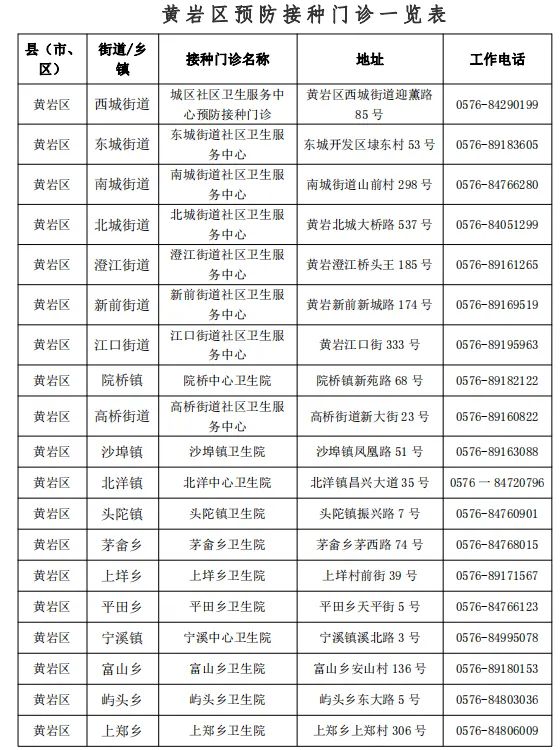In order to effectively prevent and control the occurrence of campus influenza epidemic, our district recently launched the deployment of campus influenza vaccination in 2023.
On some hot issues that parents are concerned about
Give a simple answer
↓↓↓
What kinds of influenza vaccines are there? What is the difference?
01
Trivalent and tetravalent (according to the components contained)
The flu vaccine should be vaccinated every year, because the flu virus mutates every year. The epidemic strains of influenza A virus are usually H1N1 and H3N2, while influenza B virus is divided into B/Yamagata(BY) strain and B/Victoria(BV) strain.
A trivalent influenza vaccine: H1N1+H3N2+BV
B. Tetravalent influenza vaccine: H1N1+H3N2+BV+BY

02
Inactivation and attenuation (according to the production process)
A. Split-type inactivated influenza vaccine: On the basis of the whole virus inactivated vaccine, a cracking agent is added to further purify the effective antigen components, remove the virus nucleic acid and macromolecular protein, retain the effective antigen components, and finally remove the cracking agent, thus reducing adverse reactions and maintaining high immunogenicity.
B. Subunit inactivated influenza vaccine: the special protein structure of the virus shell is obtained by purification, and only high-purity, independent and complete hemagglutinin HA and neuraminidase NA are extracted, so the process is more complicated, the adverse reaction is less, and the price is naturally more expensive.
C. Live attenuated influenza vaccine: It is a vaccine made by subculturing influenza virus to reduce its toxicity. It has better immunogenicity, but it cannot be used for people with immune deficiency.
03
Intramuscular injection and nasal spray (differentiated by inoculation route)
A. Inactivated split influenza vaccine: intramuscular injection, targeting people aged 6 months and above.
B. Subunit inactivated influenza vaccine: intramuscular injection, targeting people aged 3 years and above.
C. Live attenuated influenza vaccine: nasal spray inoculation, which is absorbed into the body through the nasal mucosa, can be replicated in the body, thus producing mucosal immunity, humoral immunity and cellular immunity. At present, the live attenuated nasal spray influenza vaccine is only trivalent. The target of vaccination is people aged 3-17. If children are afraid of injections, they can try nasal spray vaccination.

Which is the best choice for influenza vaccine?
The Technical Guide for Influenza Vaccination in China (2023-2024) clearly states that people who can vaccinate different types of vaccine products from different manufacturers can voluntarily vaccinate any kind of influenza vaccine, and there is no prior recommendation. The key is to complete the immunization as soon as possible.
Influenza has entered the high season. Is it too late to get vaccinated now?
Usually after 2-4 weeks of influenza vaccination, antibodies with protective level can be produced. In order to ensure that the recipients get immune protection before the flu season, it is best to complete immunization before the local flu season, usually from August to September. At present, it is the high season of influenza, and it is still effective to vaccinate people who have not been vaccinated before. It is recommended to vaccinate them as soon as possible. People over 6 months can be vaccinated with influenza vaccine, especially children, the elderly, patients with chronic diseases and other high-risk groups. After being infected with influenza, the risk of severe illness is higher. Vaccination with influenza vaccine can effectively reduce the risk of developing into severe illness and death. I hope everyone will actively vaccinate.

Is it safe to get the flu vaccine?
Influenza vaccine has been used at home and abroad for decades. Scientific research and vaccination practice have fully proved that influenza vaccine is safe and effective, and it is a mature vaccine. The common adverse reactions of influenza vaccination are local reactions (redness, swelling, stiffness, pain, lethargy, fatigue, myalgia, etc.), which are usually mild and self-limited, usually subside within 1~2 days, and rarely appear serious reactions.
How long is it effective after influenza vaccination? Have you been infected with the flu recently? Do you need to get a flu shot?
The immunity acquired by human body after being infected with influenza virus or inoculated with influenza vaccine will decline with time, and the degree of decline is related to factors such as people’s age, physical condition and vaccine antigen. Studies at home and abroad suggest that the antibody protection level can be maintained for at least 6 months after influenza vaccination, so those who have been vaccinated with influenza vaccine or infected since this summer do not need to be vaccinated again.

Who can’t get the flu vaccine?
① those who are allergic to the ingredients contained in the vaccine, including excipients, formaldehyde, Triton X-100, etc.
② Other people with severe allergic constitution;
③ Those with a history of Guillain-Barre syndrome;
④ Patients with uncontrolled epilepsy and other progressive nervous system diseases.
In addition, critically ill patients with various diseases should be used with caution; Patients with acute fever, acute infection and acute attack of chronic diseases should be vaccinated after recovery. Different kinds of vaccines from different manufacturers have slightly different vaccination contraindications listed in the instructions, which are subject to the assessment of the vaccination doctor.
When can I go to the vaccination clinic for vaccination?
Citizens and friends can choose to vaccinate at their own expense at the nearest vaccination clinic in the community health service center/township health center according to their own situation, and the school will communicate with the vaccination clinic in the jurisdiction to arrange the vaccination time.

How to distinguish the flu from the common cold?
01
What are the typical symptoms of influenza?
Children infected with influenza virus can show fever, chills, headache, myalgia and other general malaise, often accompanied by respiratory diseases, such as cough, sore throat and runny nose.
The degree of fever in young children may be heavier, and some children may also have febrile convulsions; In addition, they will have more gastrointestinal symptoms, such as nausea, vomiting, diarrhea and poor appetite.
A very small number of children infected with influenza may develop into severe influenza, causing laryngitis, pneumonia, encephalopathy, myocarditis and so on.
02
How is the flu spread and how long is the incubation period?
Influenza virus can spread from person to person through respiratory droplets (such as sneezing, coughing and talking) or after polluting the surface of objects.
Influenza viruses can also spread through small air particles released by influenza patients when they breathe. Influenza patients are the main source of infection.
The incubation period of influenza is generally 1~7 days, and most of them are 2~4 days.
03
How long is the general course of influenza and what is the change of the course?
For children without basic diseases, the course of influenza virus infection is acute and self-limited, and most symptoms disappear within 2~3 days after onset. Some children’s fever lasts for 5 days, and most of them recover within 1 week. However, cough may last for a long time, and the fatigue of a few older children (over seven or eight years old) may last for several weeks.
04
How to distinguish the flu from the common cold?
The full name of the flu is called "influenza", and you may think it is similar to the common cold, but the flu and the common cold cannot be confused.
The common cold can be caused by many pathogens, among which viruses are the most common, including rhinovirus, adenovirus, metapneumovirus, bocavirus, etc. Bacteria and mycoplasma can also cause the common cold.
The symptoms of the common cold are mild, usually low-to-moderate fever, which lasts for 1-2 days, and may be accompanied by symptoms such as sneezing, runny nose, stuffy nose and slight cough, while systemic symptoms such as chills, headache and joint muscle pain are very mild. Generally, there are no serious complications.
Influenza is mainly caused by influenza A and B virus infection, with high fever, shivering, headache, joint muscle pain and other systemic symptoms. A few influenza patients may have complications such as rhabdomyolysis, pneumonia, encephalitis and encephalopathy.
In the flu season, children with flu-like symptoms, especially those with a history of contact with influenza patients, should first consider influenza virus infection, which can be diagnosed by influenza virus antigen detection or influenza virus nucleic acid detection.
Original title: "The flu is high! Vaccination hot issues are all here → "
Read the original text
关于作者